Entering Tsavo West National Park in Kenya: Safari Day 2
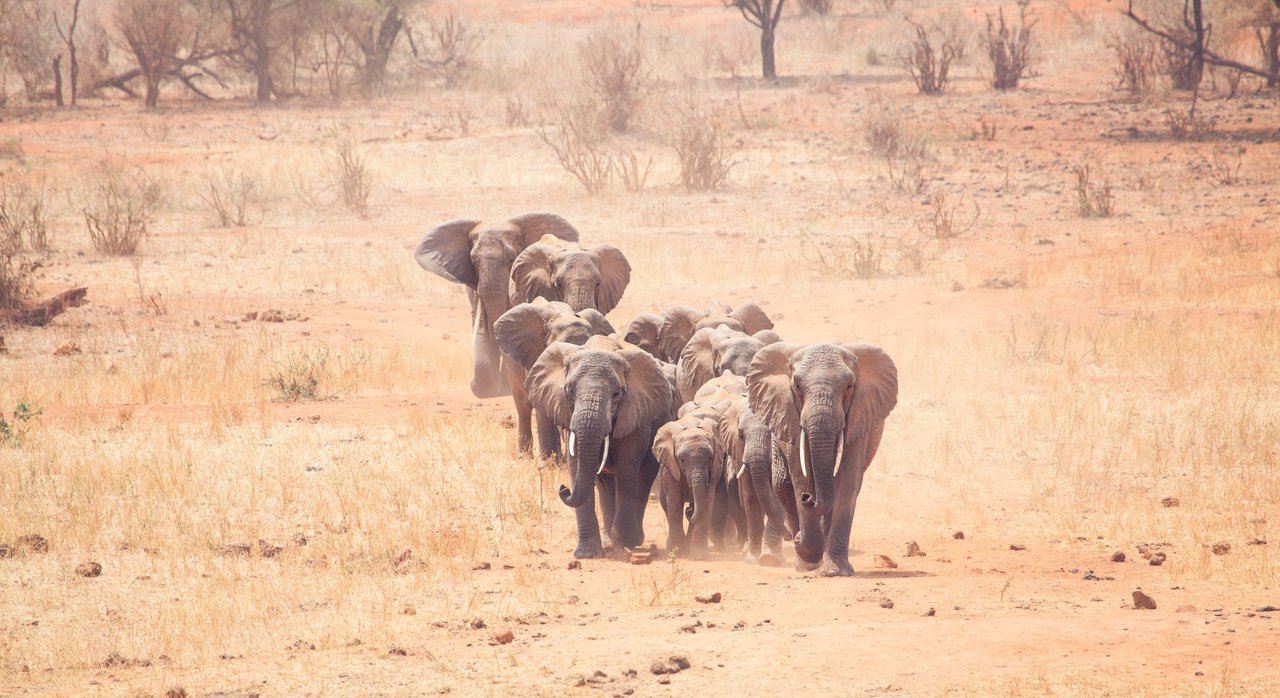
We spotted our first group of wild elephants racing their way down to the water hole.
Tsavo West National Park, located in southeastern Kenya, is part of the larger Tsavo ecosystem, one of the country’s oldest and largest wildlife reserves. Covering nearly 9,000 square kilometers, Tsavo West is renowned for its dramatic landscapes, including volcanic hills, dense woodlands, and open plains, which create a diverse habitat for a wide variety of wildlife. It is a very different ecosystem than the other major parks in East Africa, which gives us a chance to see some different creatures. One of our first sightings in the park was a tiny antelope that could fit in your handbag, called a dik dik.
After facing death-defying Kenyan truck traffic for the entire morning, the smiles are real for leaving the highway, popping up the safari top, and entering the dirt tracks of Tsavo West National Park!
The park is less crowded compared to some of Kenya's other reserves, making it an ideal destination for those seeking a more tranquil safari experience. With its rich biodiversity, and stunning landscapes, Tsavo West provides a truly immersive African wilderness experience. Whether you're on a game drive, hiking, or enjoying the views from Kilaguni Lodge, Tsavo West delivers an unforgettable adventure for nature lovers and safari enthusiasts. I hope to show the group the famous red elephants of Tsavo. These are elephants covered in the red soil that is so prevalent here.
Location and altitude of our lodge here in Tsavo.
One of my favorite views in Africa. This is the view from our dining area in the Kilaguni Lodge.
Kilaguni Lodge is one of the oldest and most iconic safari lodges in Kenya. Located within Tsavo West National Park, the lodge offers breathtaking views of the vast savannah, Mount Kilimanjaro, and the famous waterhole that attracts a variety of wildlife, including elephants, zebras, and buffalos. Built in harmony with its natural surroundings, Kilaguni Lodge provides guests with a seamless blend of comfort and wilderness. The lodge features spacious rooms with private balconies that offer unobstructed views of the wildlife, allowing for a unique and immersive safari experience right from your doorstep.
We arrived in time for lunch, which was like lunch and a show since our table overlooked the prolific waterhole next to the lodge. We added zebra, elephants, giraffe, and waterbuck to our list without even leaving the lodge! We even had a chance to test out the pool before jumping back in our safari vehicle for an afternoon game drive. We had a very intimate encounter with klipspringers, another unusual antelope species that lives in the rock outcroppings and close views of more zebra, elephants, and buffalo. We saw Coxe's hartebeest and fringe eared oryx for the first time. And we added lots of new bird species.
Pasta making station at the Kilaguni Lodge.
Now we are falling asleep to the sounds of elephants trumpeting outside our rooms at the waterhole. But first, here are some shots that sum up our day.
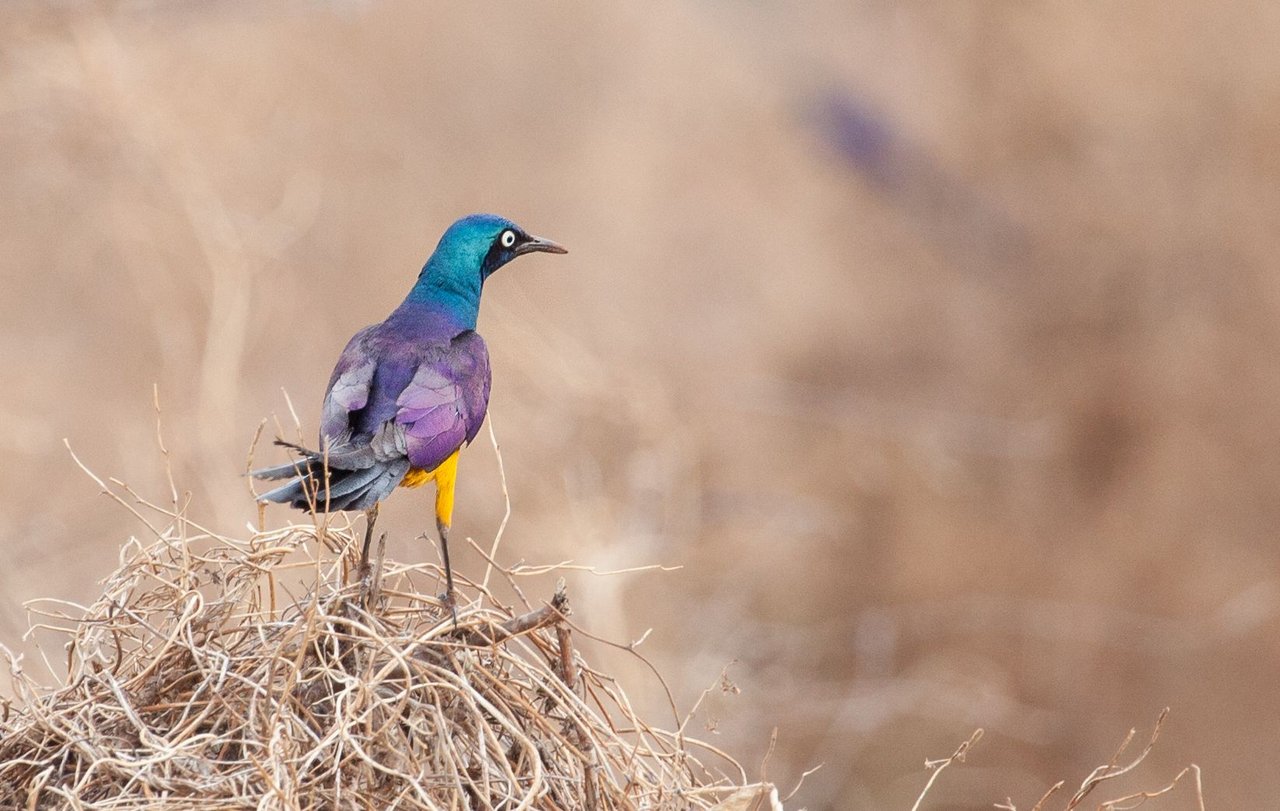
Golden Breasted Starling. The bird game here in Kenya is amazing!
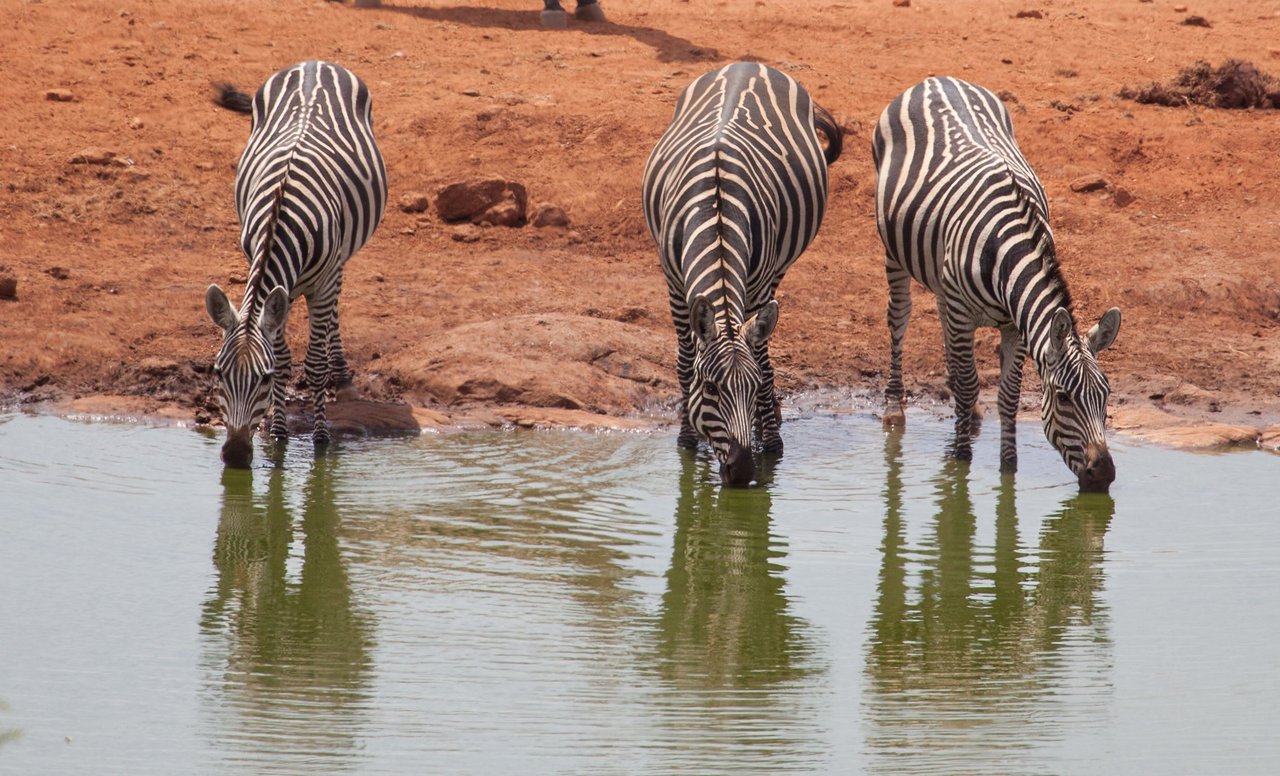
Zebras coming in for a drink at our local watering hole.
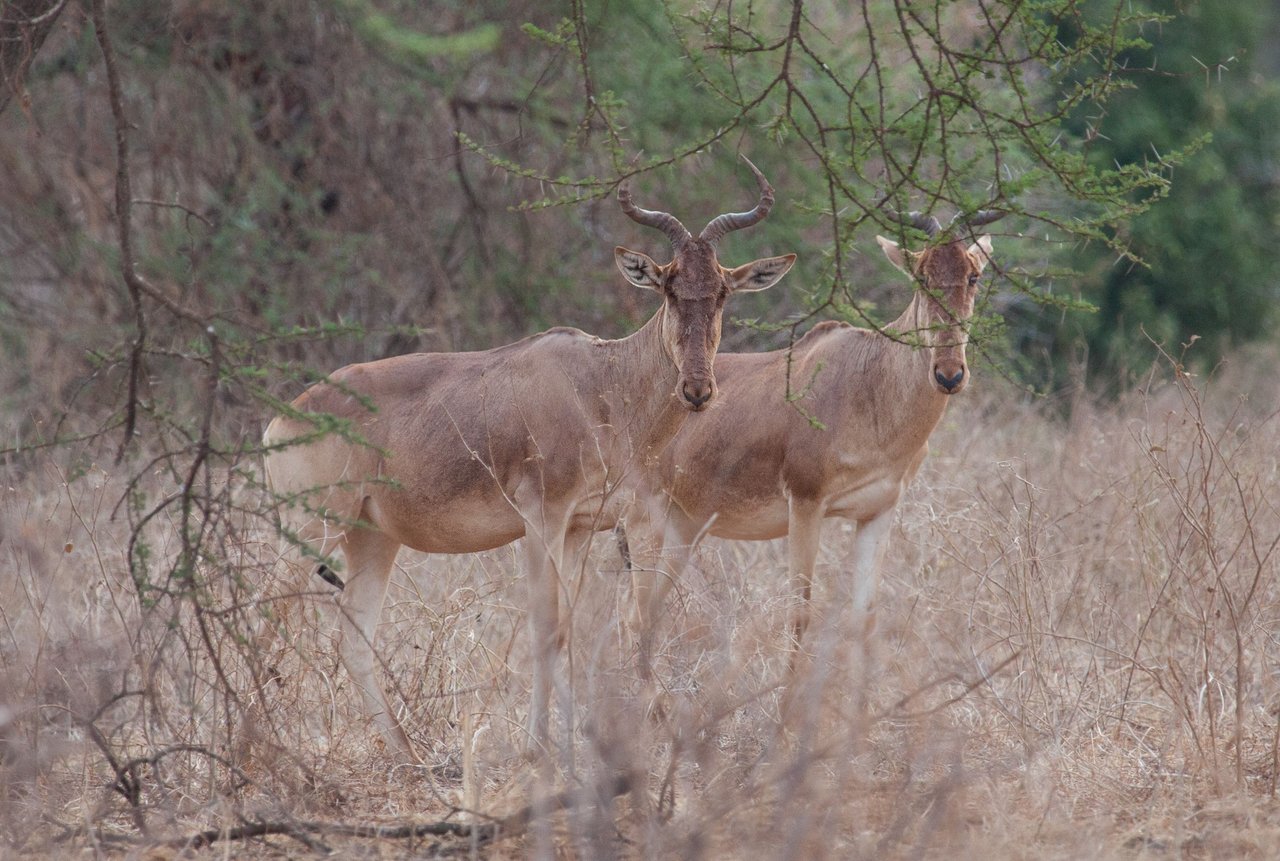
Coke's Hartebeest with their long faces.

Massive flocks of red billed quelea are migrating through Tsavo at the moment.
Tucked in a beautiful corner of our lodge grounds is the often underutilized pool. I made sure to utilize it today though!
The photo is so scenic that there is even scenery in the side view mirror.
I am impressed with the landscaping around the lodge.
The entrance looks pretty much the same as it does in the first historical photos of the lodge.
A family of elephants enjoying a different waterhole during our afternoon game drive.
This is the male agama lizard. They are running all over the lodge grounds.
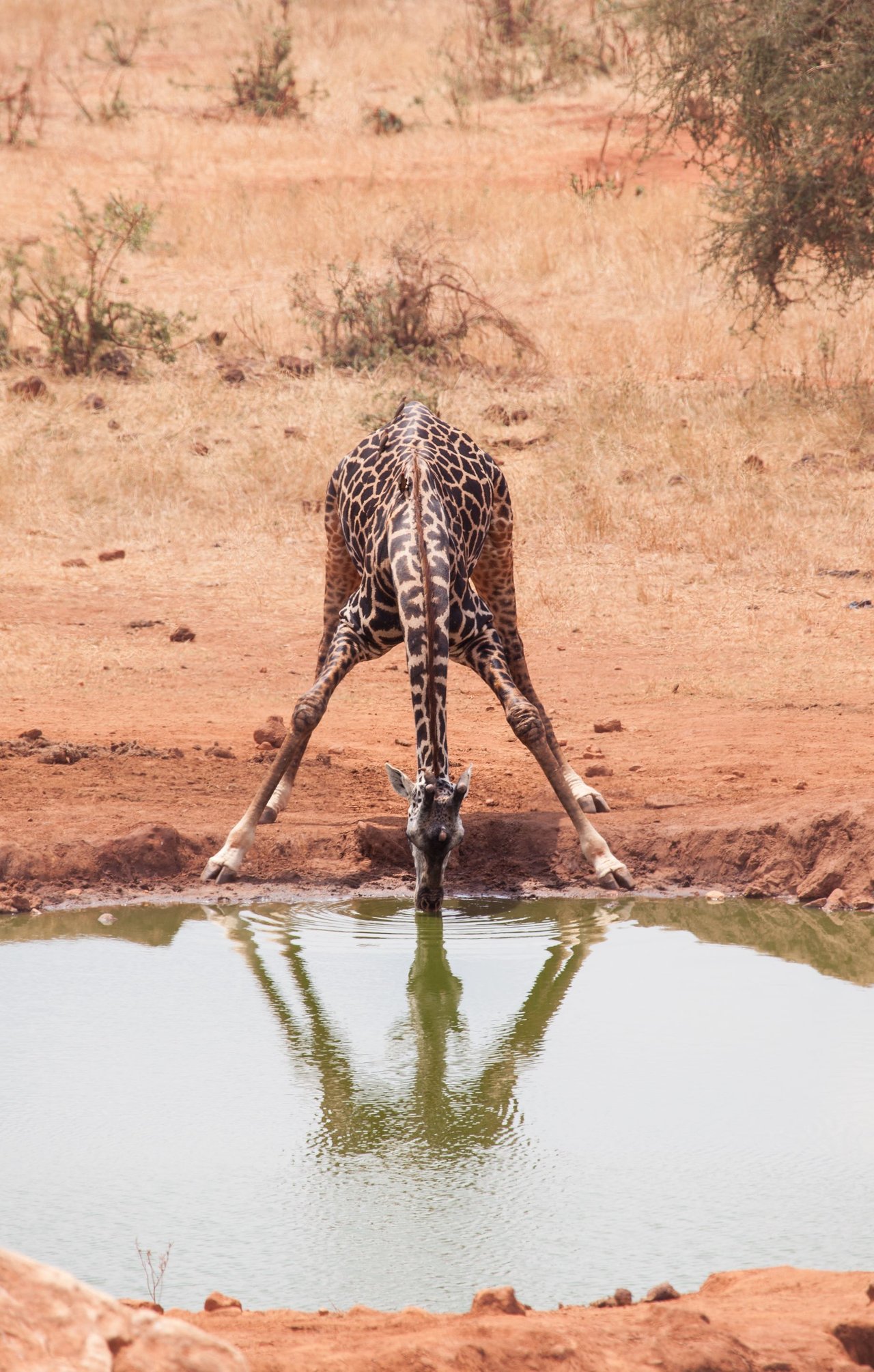
How do giraffes drink water? Oh, like this!
Terry and Diane, ready for safari action!
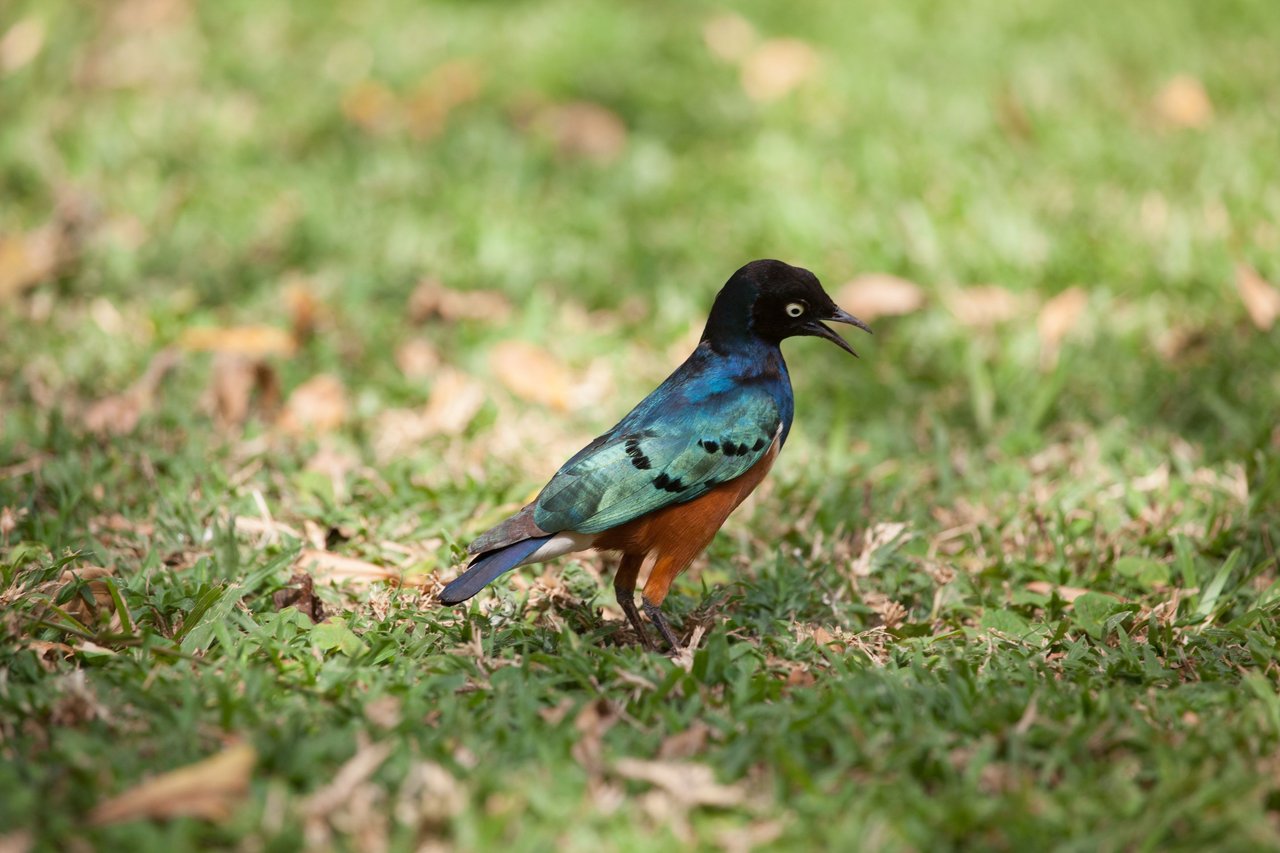
The superb starling, stepping out of the shadows to catch the sunlight.
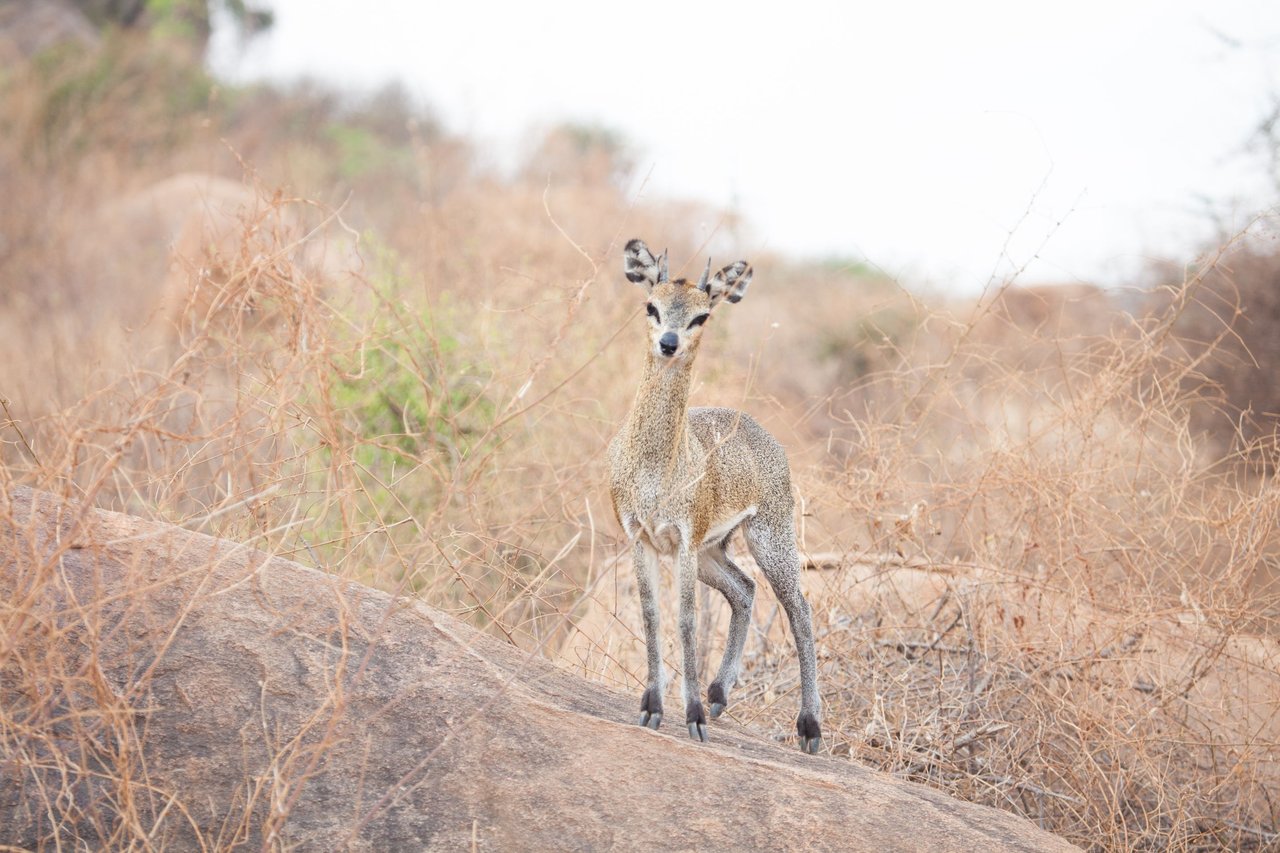
Maybe the best klipspringer encounter i've ever had. This one just checked us out from his rocky perch from a dozen feet away. Klipspringers can effortlessly leap between narrow outcroppings and cliffs, thanks to their specialized hooves, which are small, round, and tipped with rubbery pads that help them grip onto rock surfaces with precision. This ability to navigate treacherous landscapes allows them to evade predators like leopards and hyenas with incredible speed and agility.
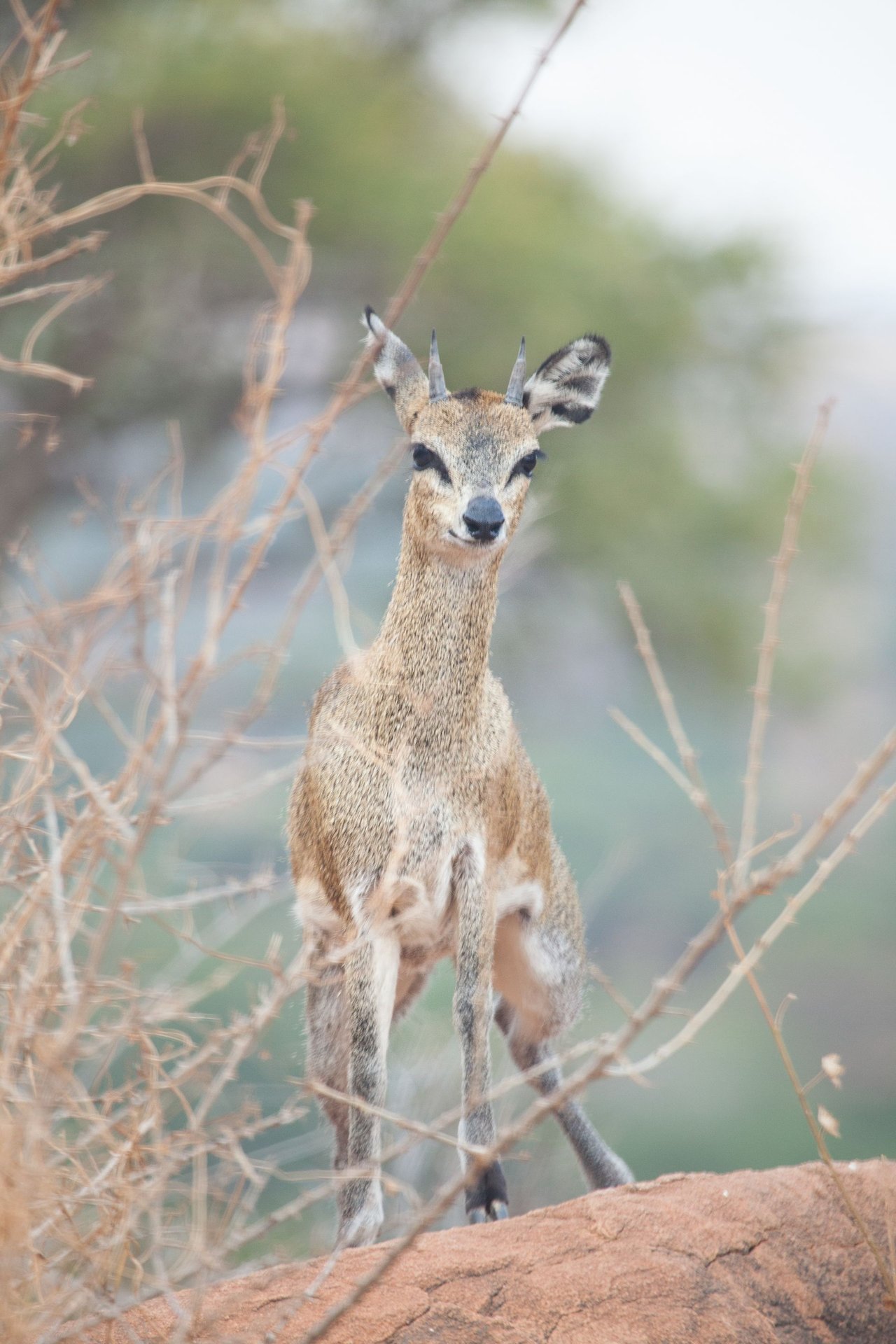
We had an entire photoshoot with this guy.
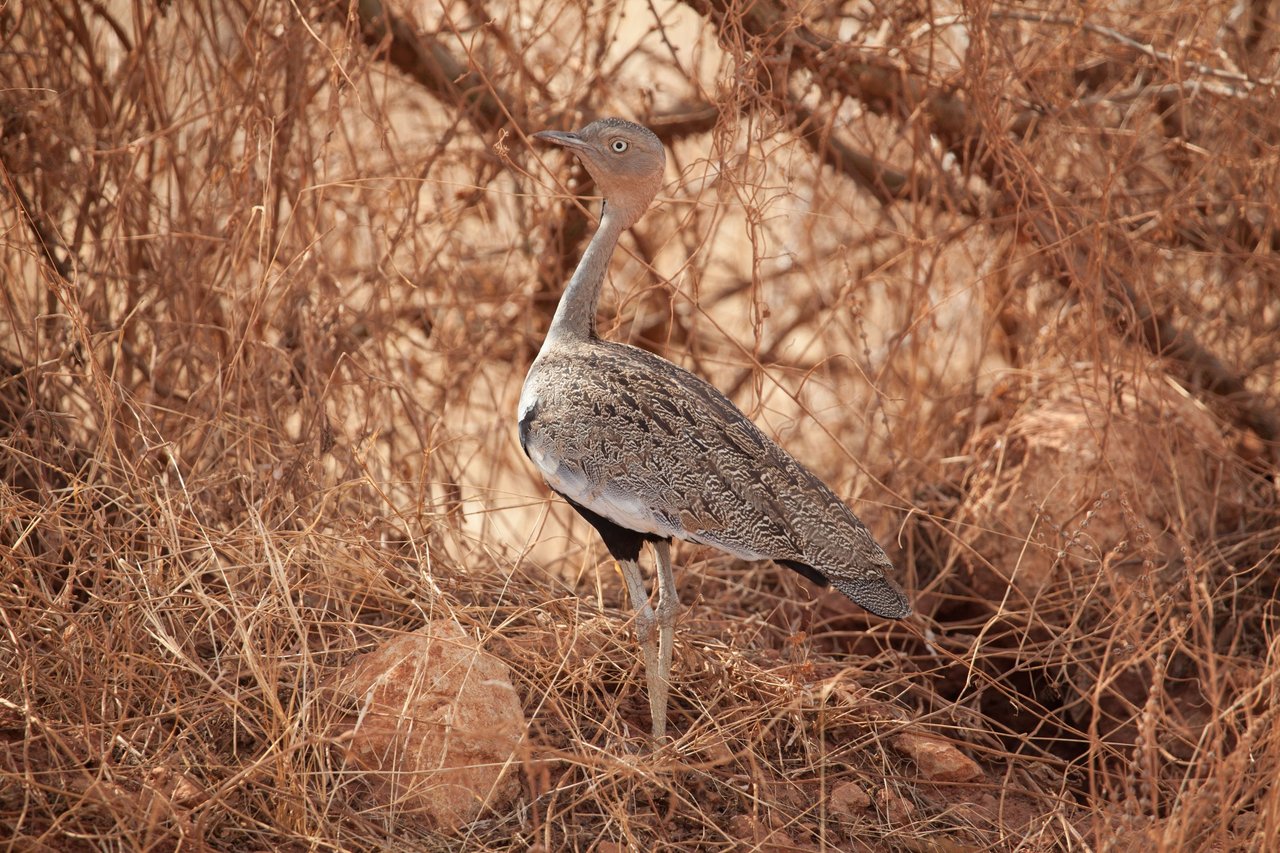
Everyone busted out their binoculars to get a close up look at this black bellied bustard.
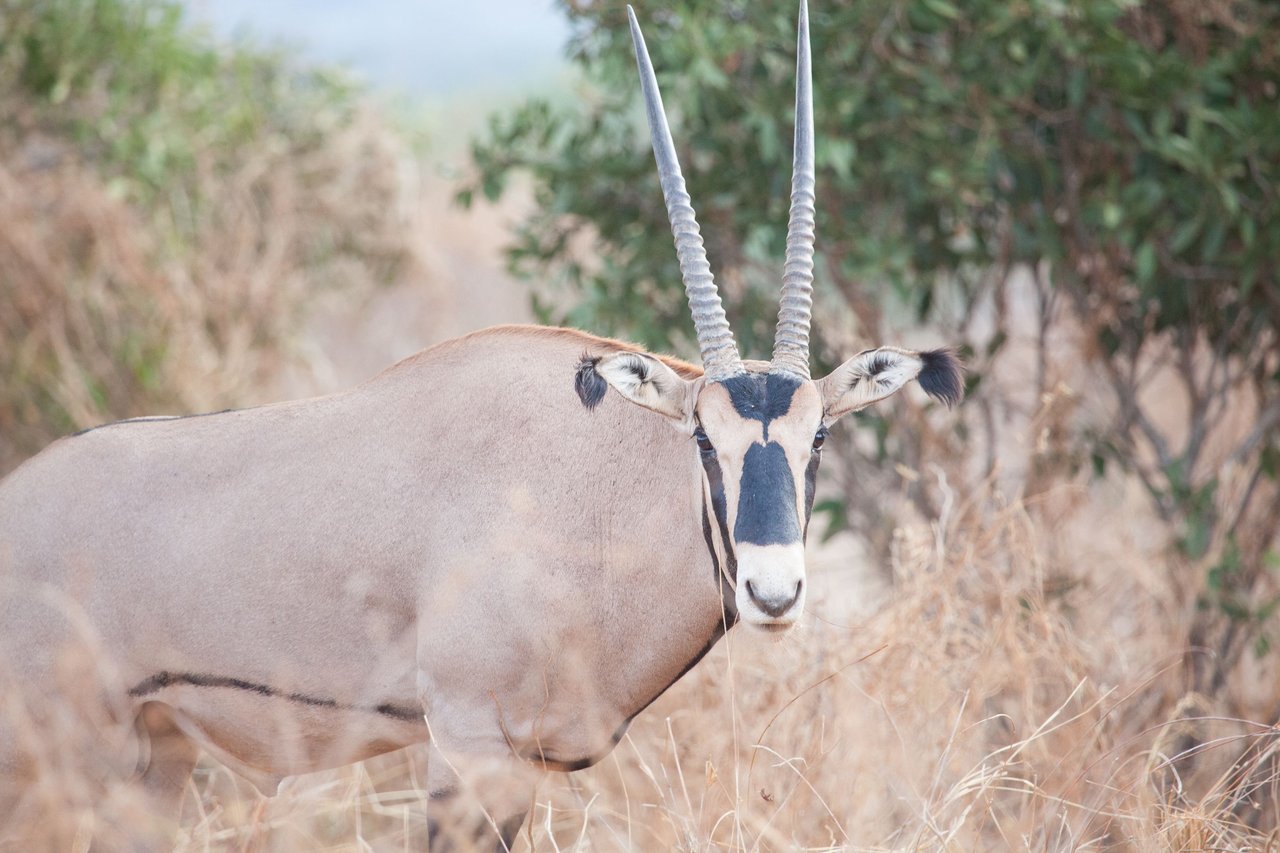
A close encounter with a fringe-eared oryx. When they turn sideways it looks just like a unicorn.
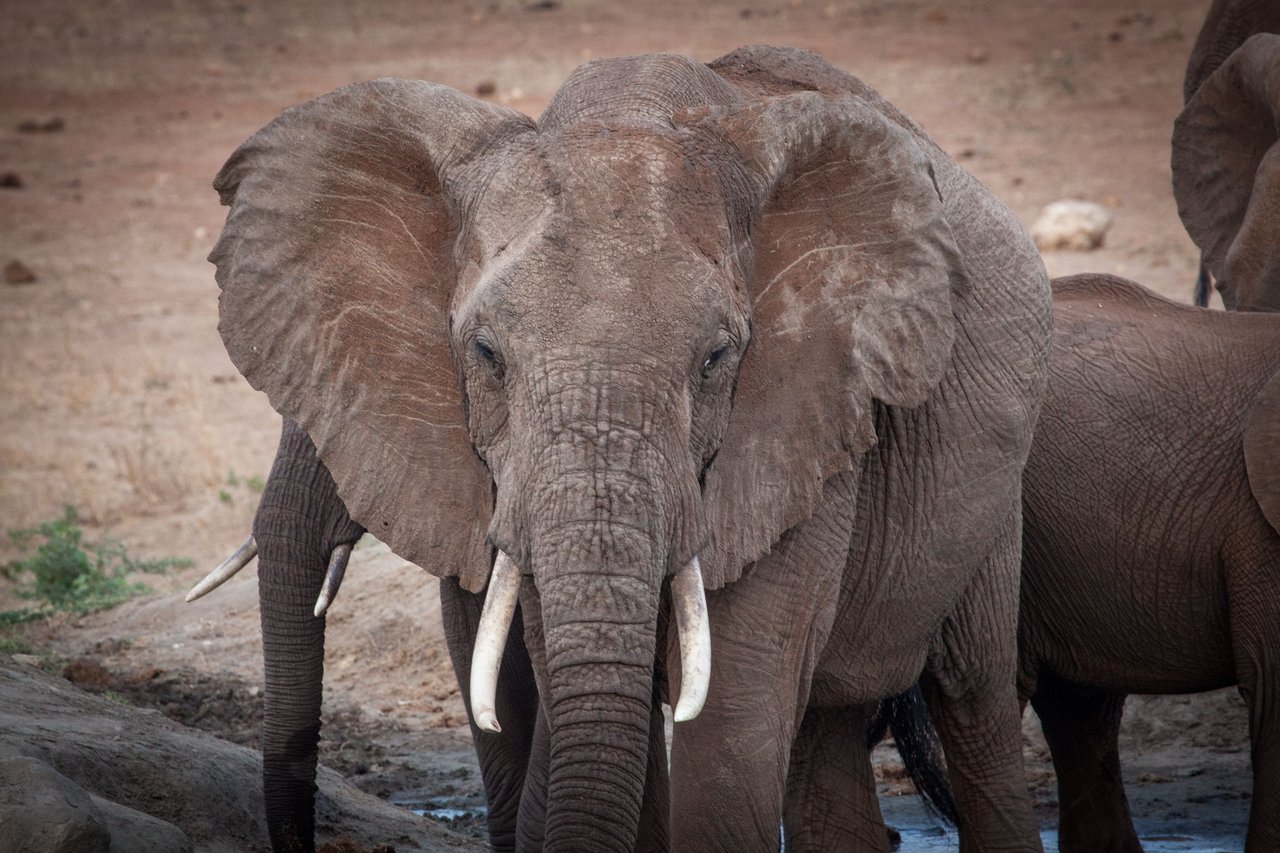
Portrait of an African elephant, fanning itself with its ears to stay cool.
Bird Species: African hoopoe, D'Anouts barbet, lilac breasted roller, Rufus crowned roller, helmeted guinea fowl, yellow throated francolin, golden breasted starling, superb starling, glossy ibis, hadada ibis, tawny eagle, chanting goshawk, wooly necked stork, maribu stork, red billed quelea
Mammal Species: elephants, zebra, waterbuck, lesser kudu, dwarf mongoose, dik dik, klipspringer, hartebeest, fringe eared oryx, rock hyrax, buffalo, and impala.
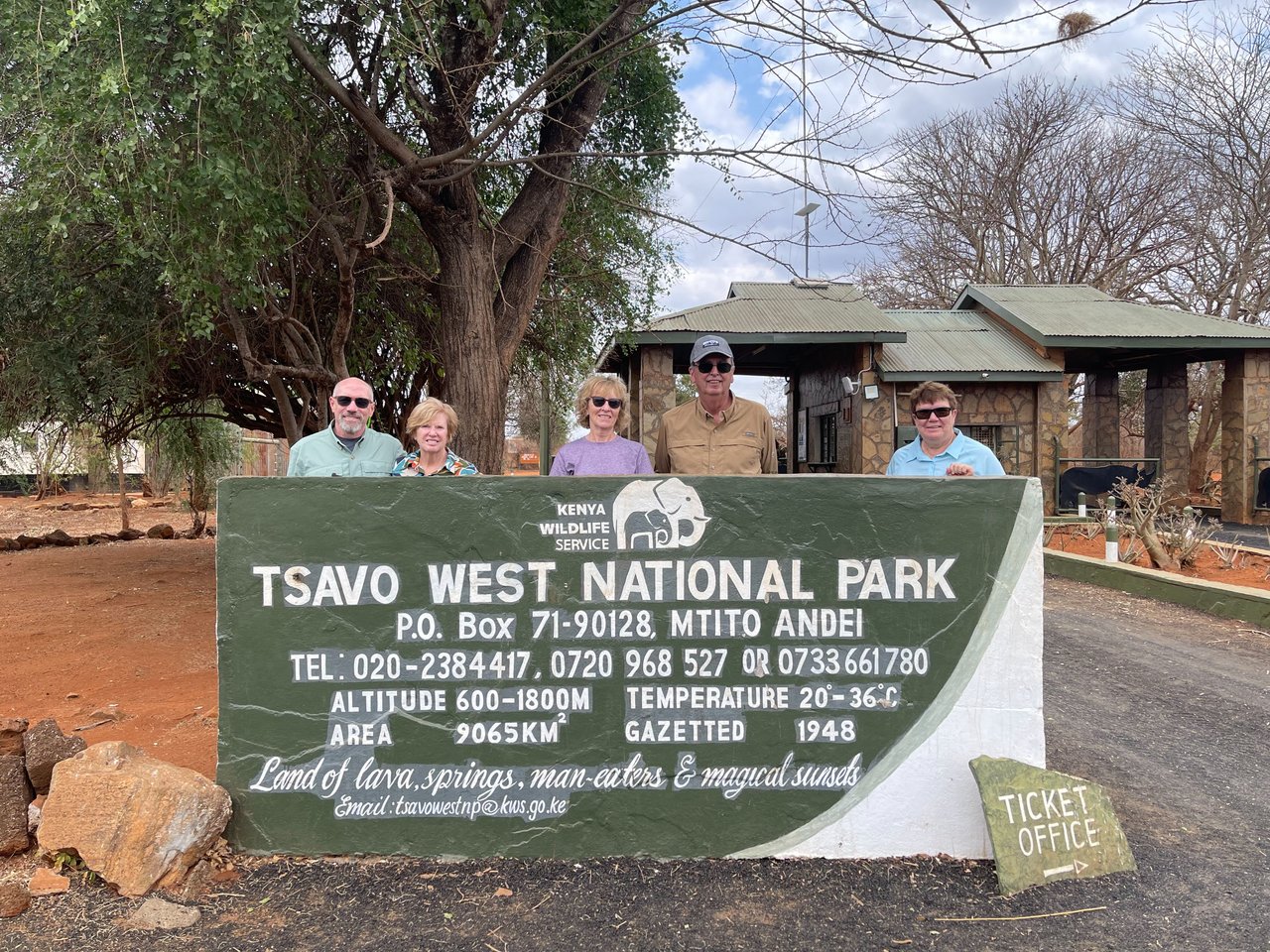
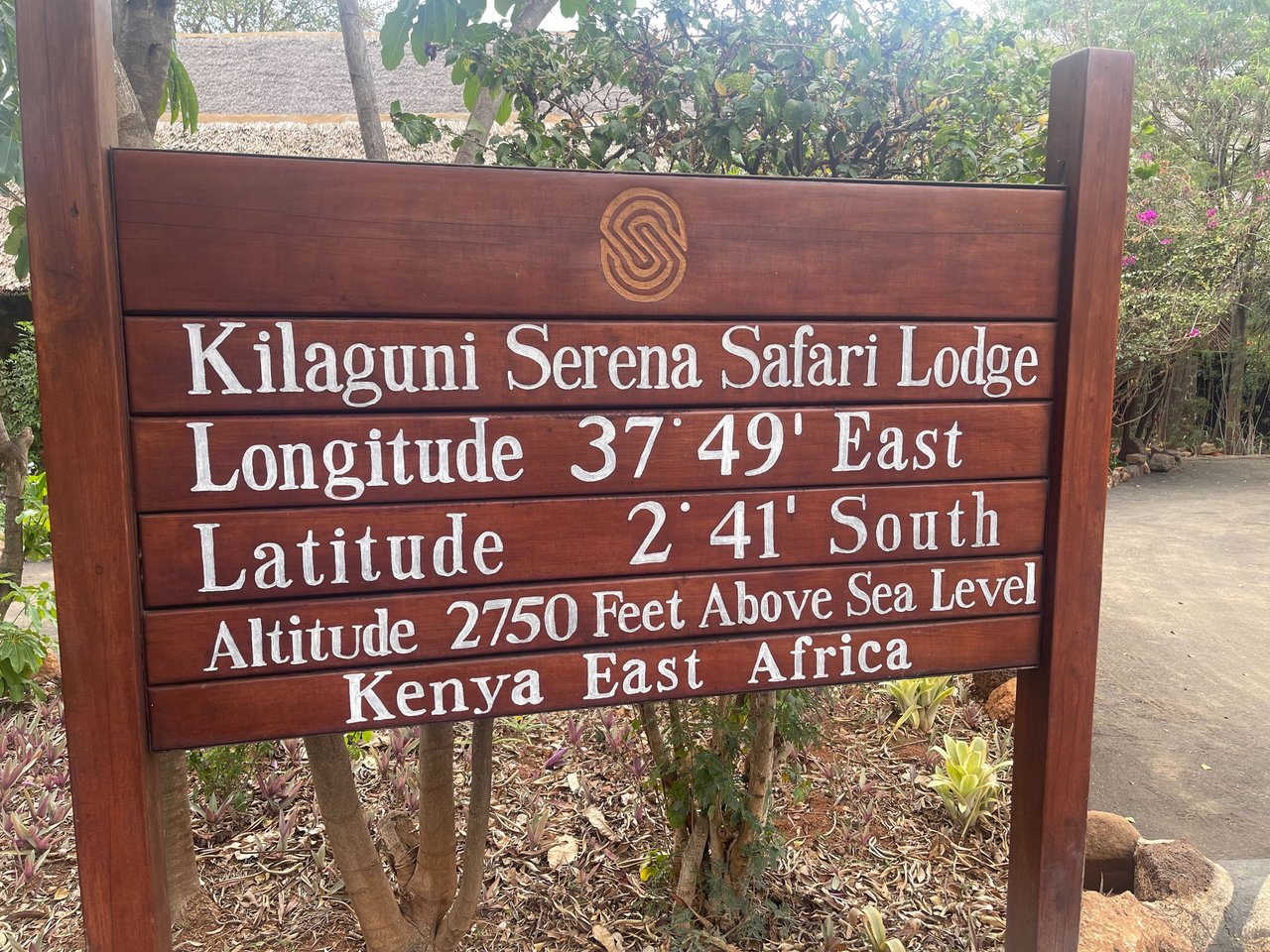
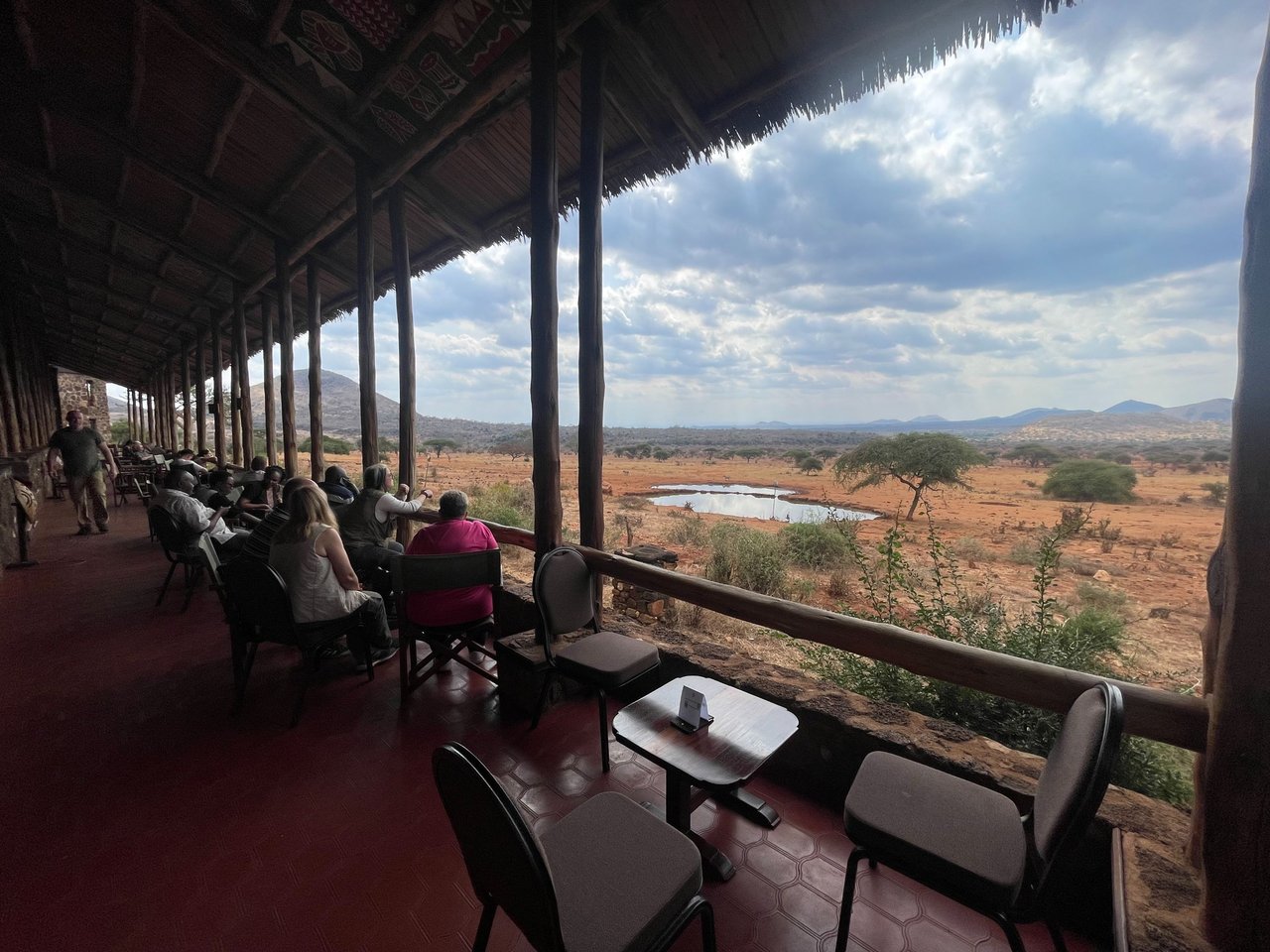
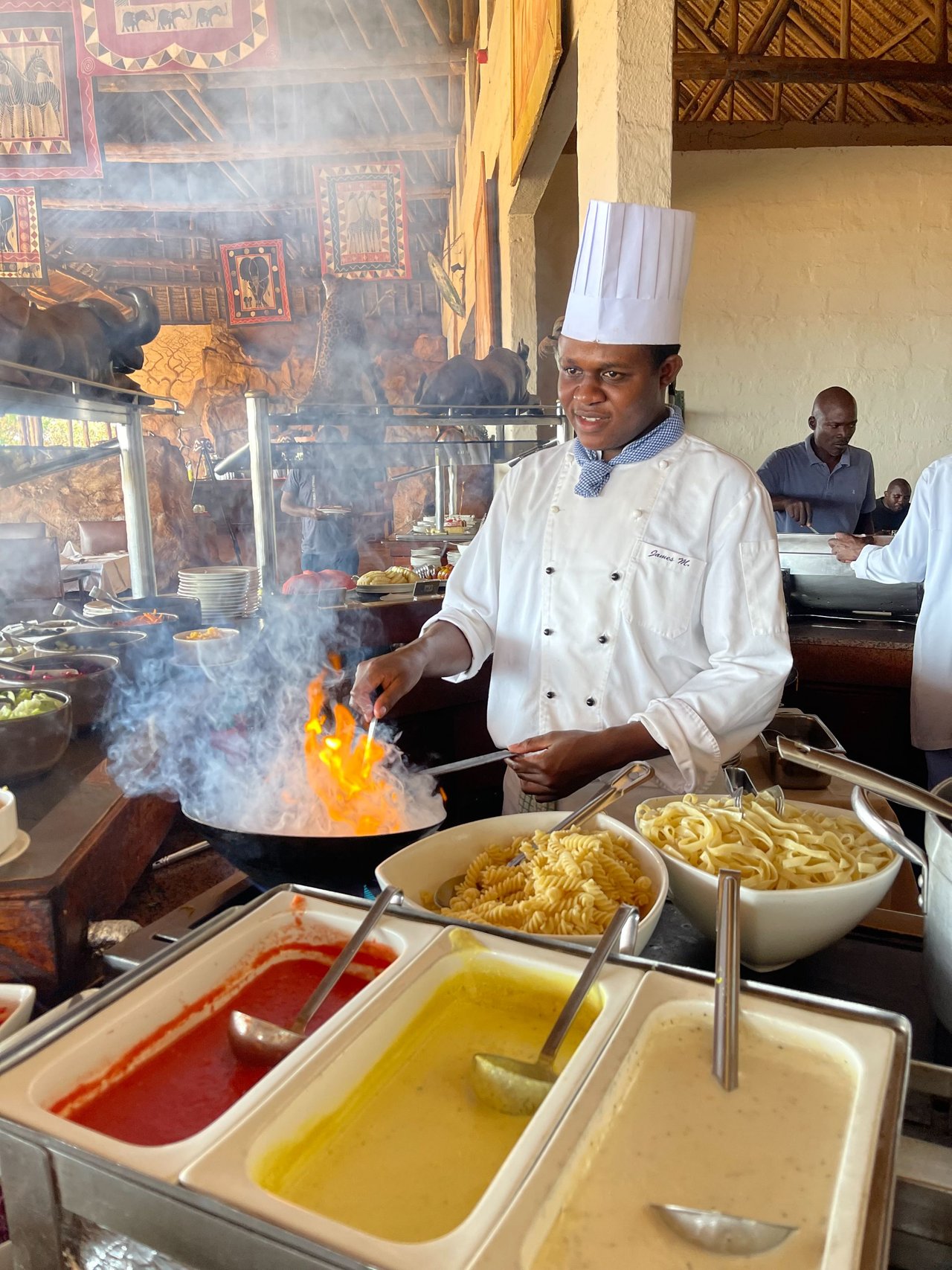
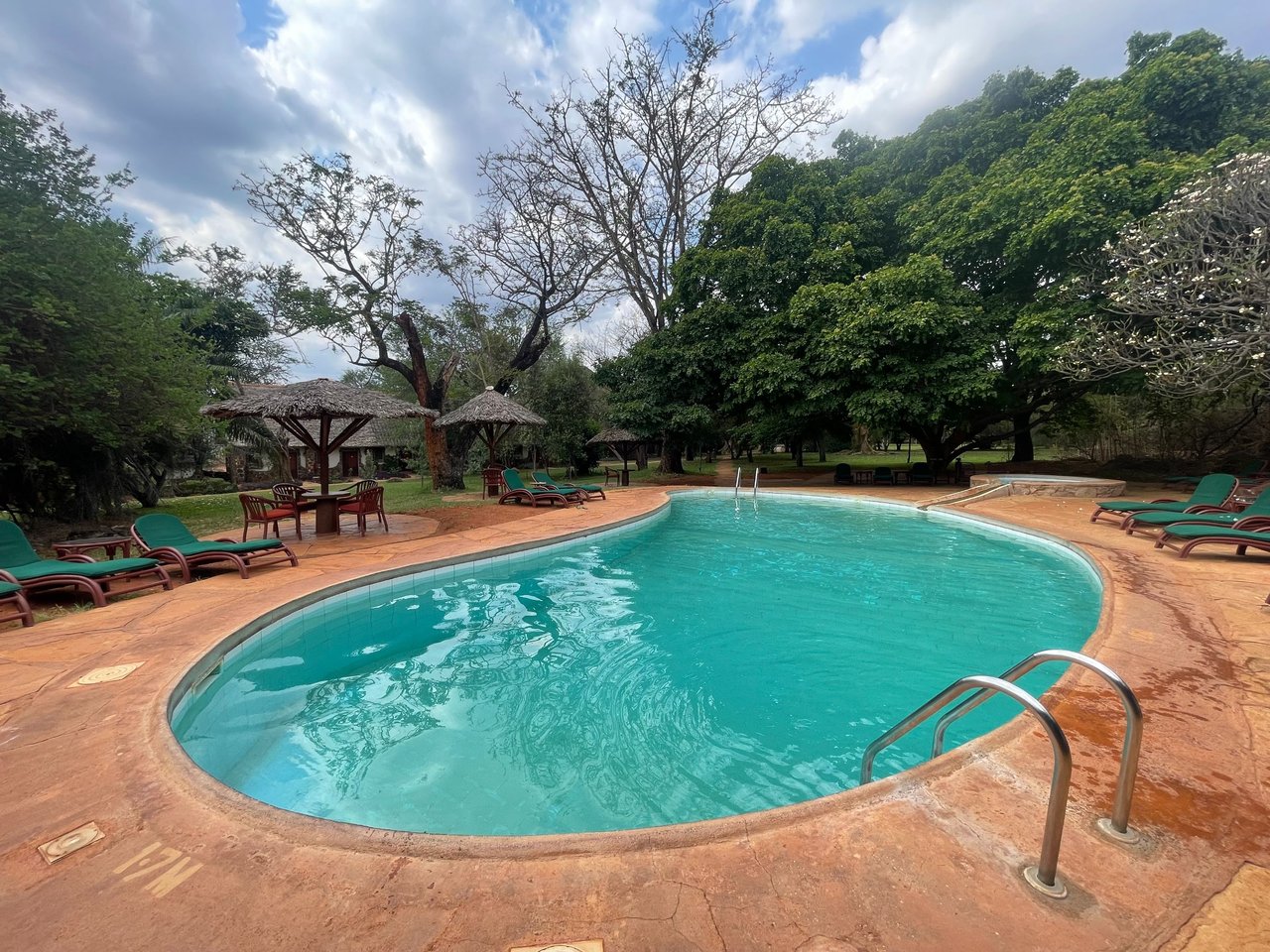
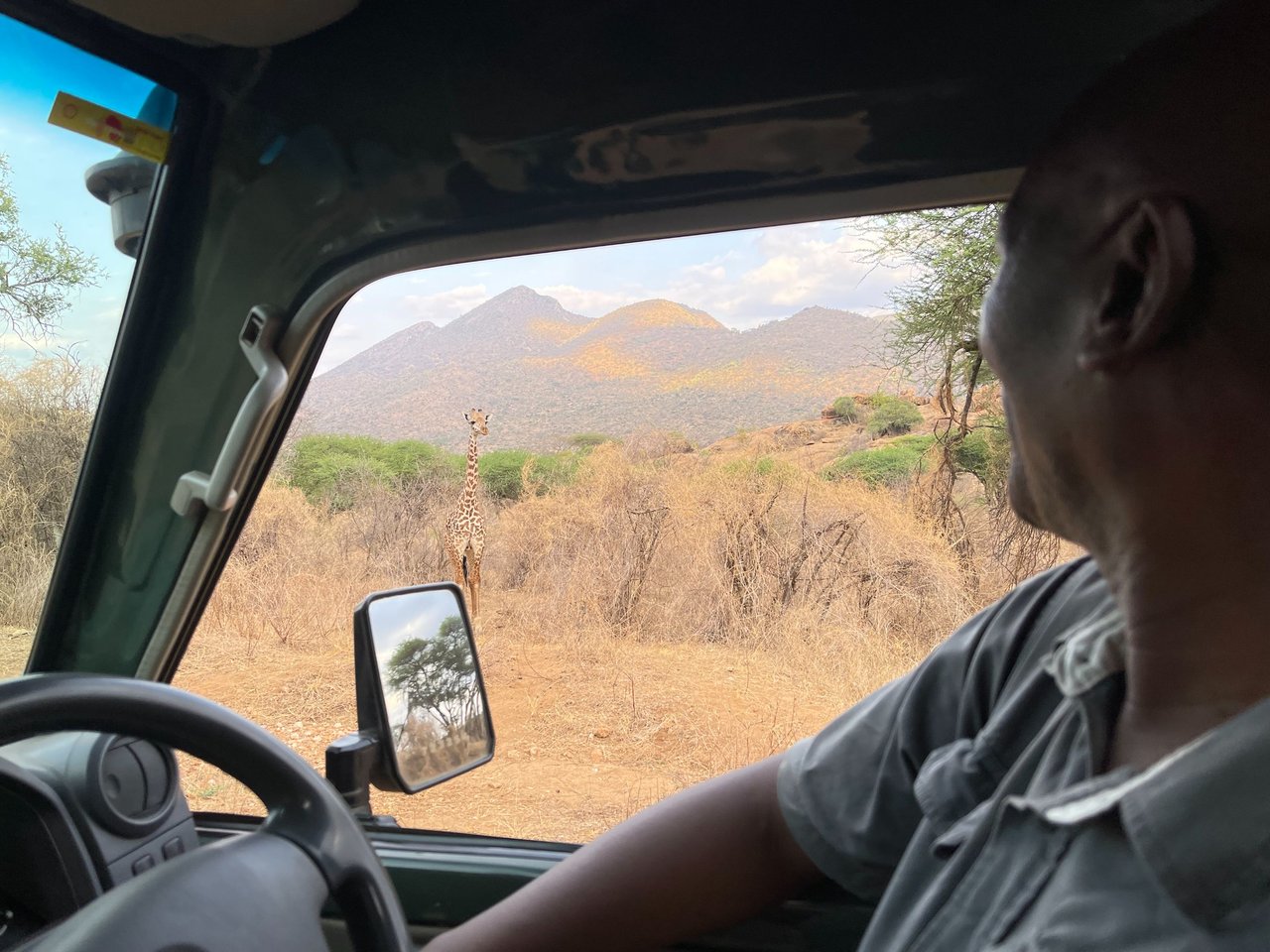
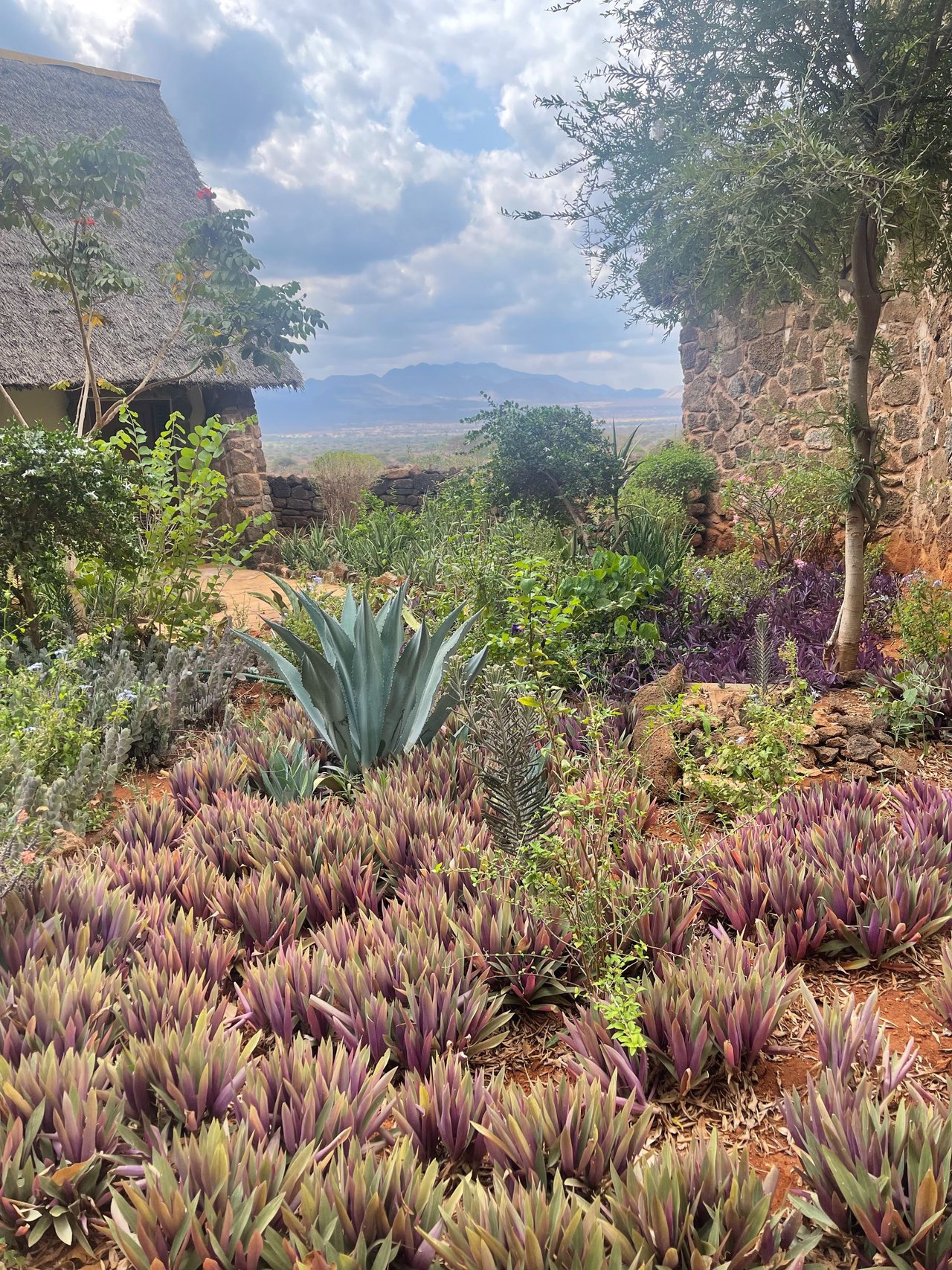
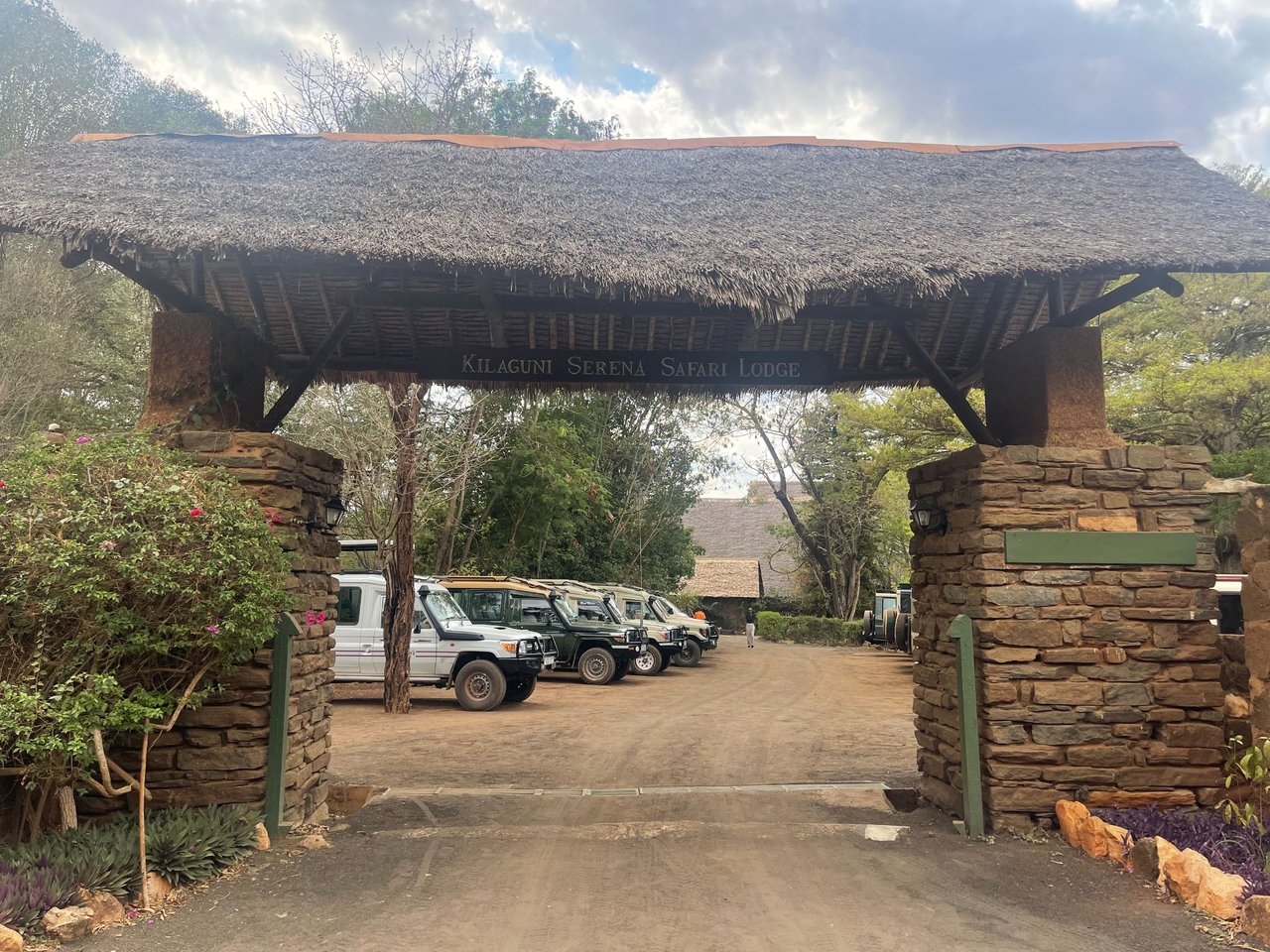
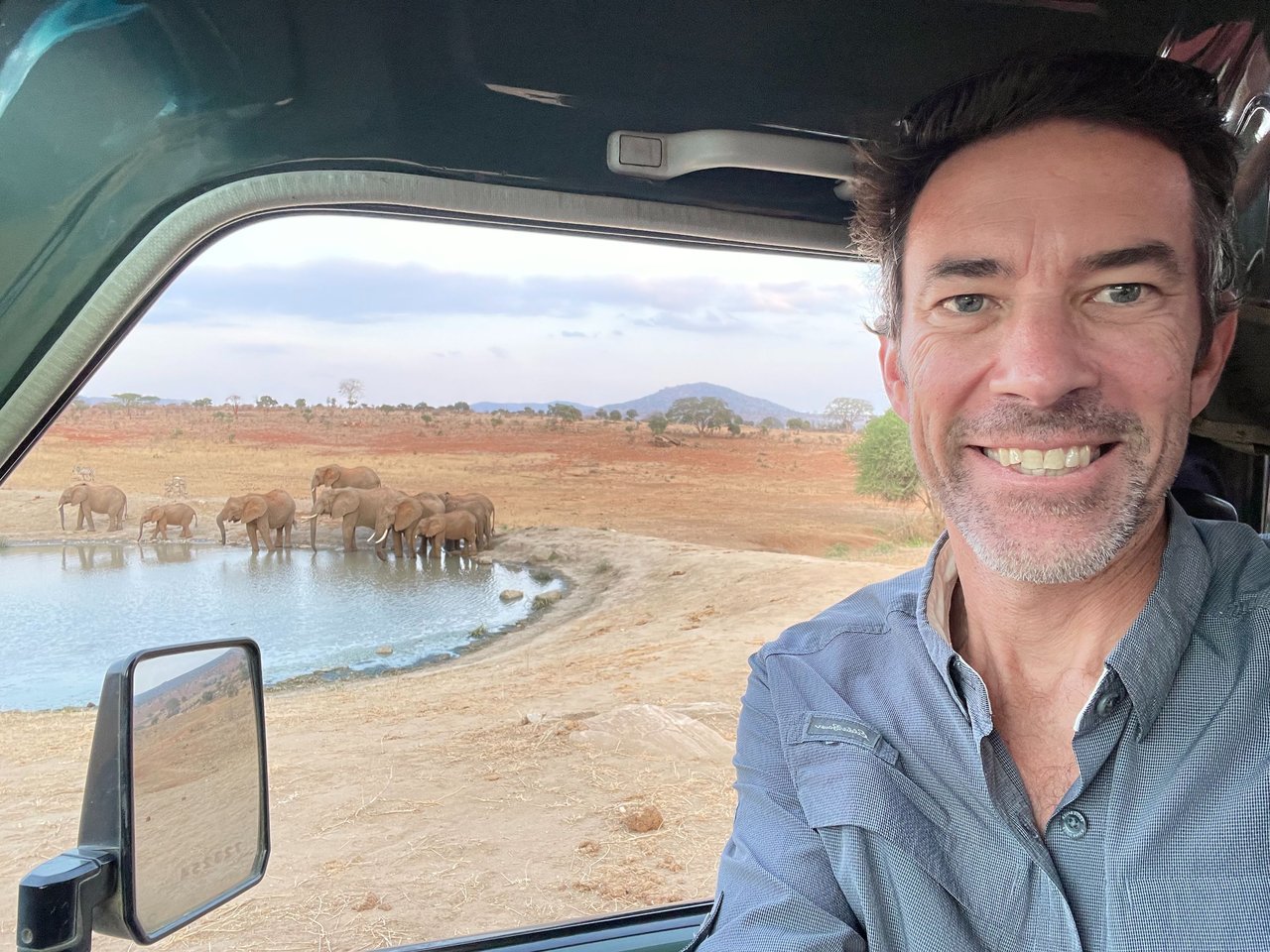
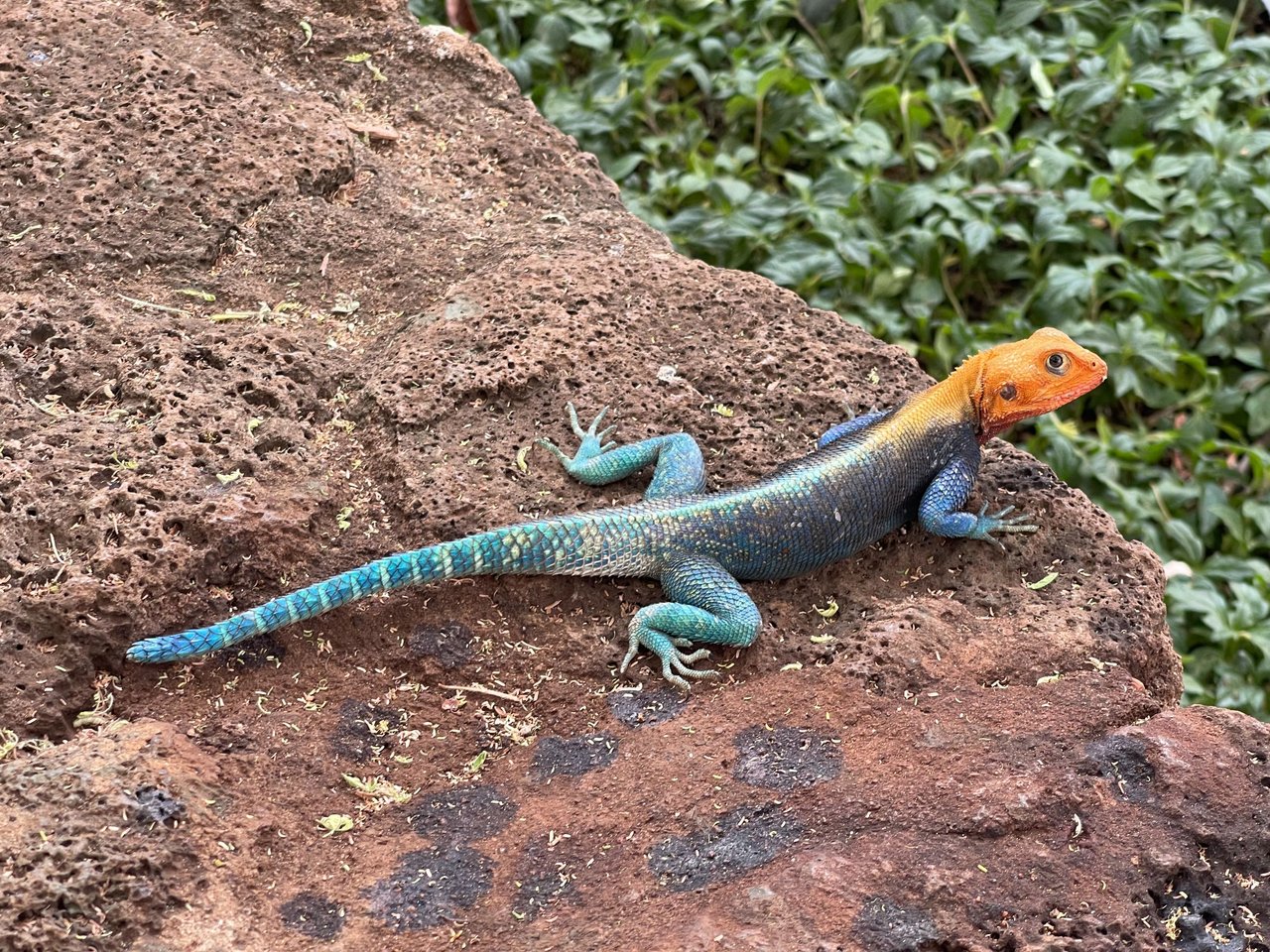
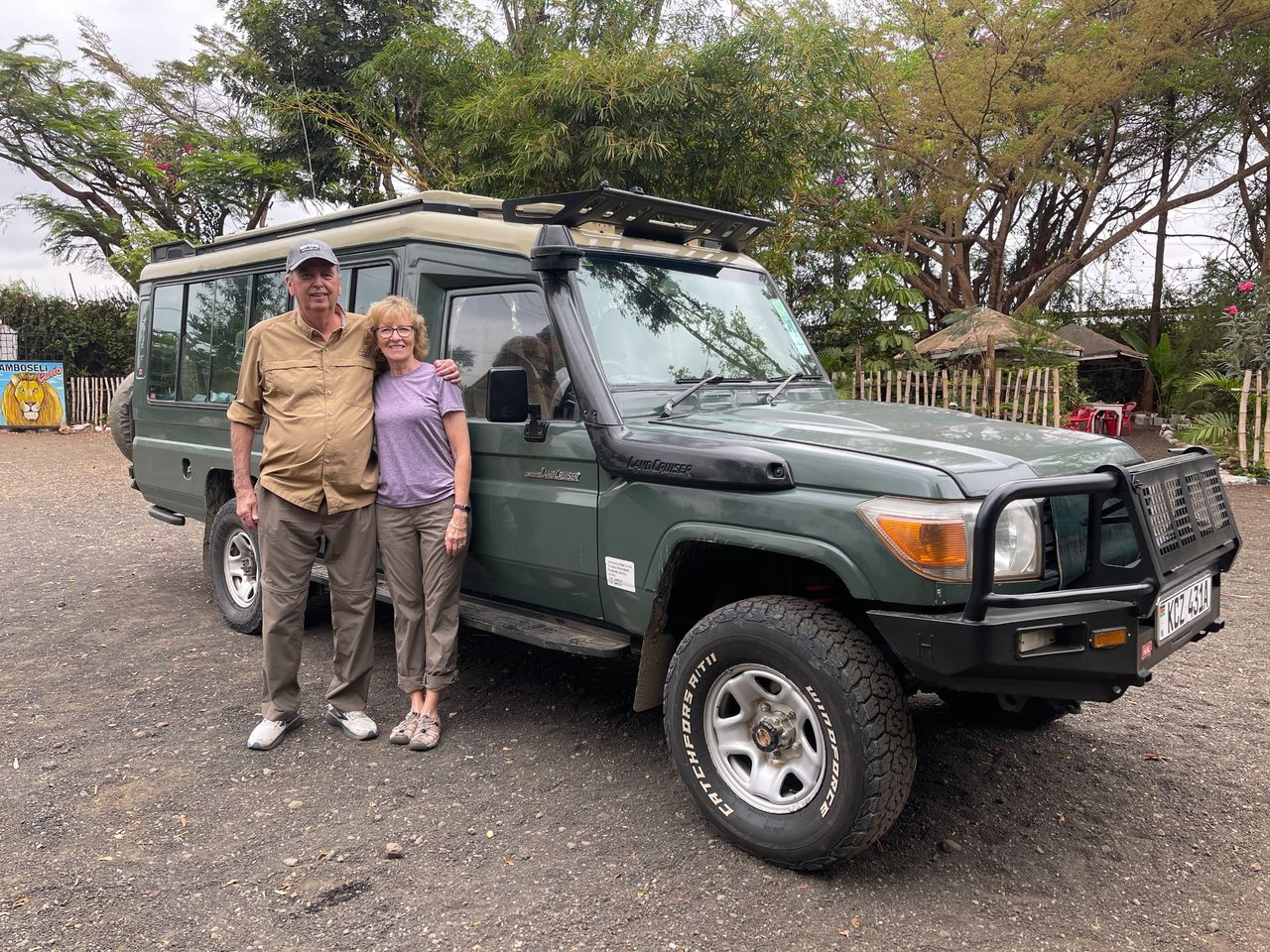



Comments
Post a Comment
Leaving a comment is a great way to provide feedback, ask further questions, and inspire more answers...so go for it.